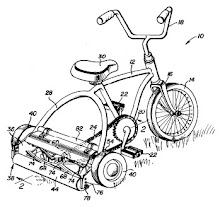
Your smartphone is a sophisticated, connected sensor platform. The City of Boston is rolling out apps to improve quality of life through its "new urban mechanic" initiative. Through apps like Citizens Connect, we can report graffiti, get streetlamps fixed, and (maybe) even automatically detect potholes. I am working on a project with Nigel Jacob, owner of the mechanic project. As a cyclist, I'm prototyping a mobile app that will make life better for bikers in Boston. If it looks good, his department may invest the time to release it as a production-quality system. This would be a great and low-cost way for the Mayor to follow through on his promise to make the city a "cyclist's dream."
Here's my question for you: What do you want? How can we help? What cycling frustrations could be solved with a mobile app? A few ideas to start the conversation:
- Need: finding bike lanes. Help with route planning.
- Frustration: cars parked in bike lanes. Submit photos of offenders? Automatically detect swerving into traffic when in a bike lane?
- Need: automatic dispatch of police/ambulance after an accident. Detect sudden deceleration followed by extended immobility, message 911 with current location.
Image licensed Creative Commons by abbyladybug.




